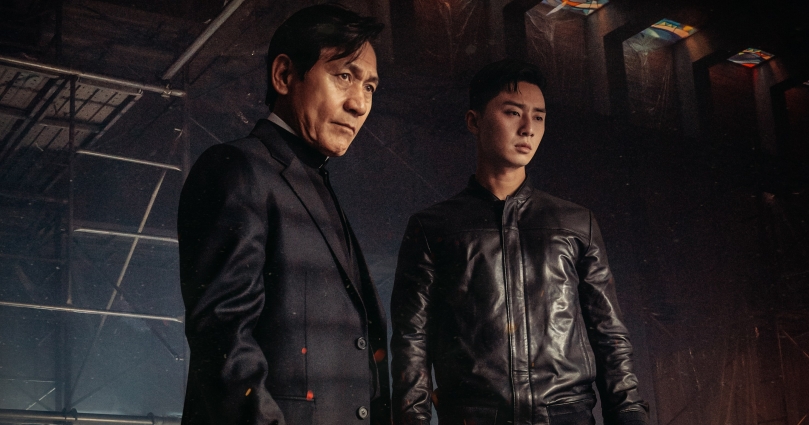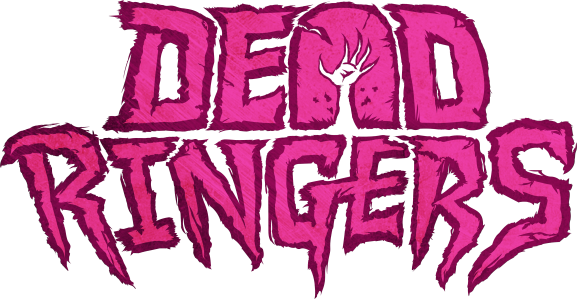By: Emily von Seele

One of the biggest surprises to come out of Fantasia Fest is The Divine Fury — the Korean story of a holy spirit-infused MMA fighter.
Yong-hu (Park Seo-jun) was raised in a very Catholic household, and was taught that if he loved God and prayed hard, he would be cared for and his prayers would be answered. When he loses his father in a terrible accident, Yong-hu denounces God and the Church, choosing to make his way on his own.
Flash forward twenty years, and Yong-hu is a very successful and badass MMA fighter, leading a comfortable life. One day, he experiences a strange wound on the palm of his hand that refuses to heal. In need of answers when medicine fails him, his path crosses with Father Ahn (Ahn Sung-ki), a Catholic priest and exorcist who believes that Yong-hu has received the Stigmata and that his wounds are a gift from God in the eternal fight against evil. Initially reticent, Yong-hu finds himself drawn into the mysterious world of demons and the delicate balance between darkness and light.
The film plays like a Korean version of Constantine — borrowing from Catholic tradition and giving it a comic-book tint, creating its own mythology and rituals as it goes. It’s really more of a supernatural adventure story than a straight-up horror film. It has some creepy demon moments and imagery, but it also includes a fair number of fight sequences. That being said, director Kim Joo-hwan seems more than familiar with the tropes and set pieces of exorcism films and uses those moments well.
Unlike a lot of possession films that focus on a single demonic case, this one chooses to follow Yong-hu and Ahn as they encounter several possessed individuals and banish the demons from their hosts. Through this, the story focuses on Yong-hu’s journey and we get to see the relationship between him and Ahn build over the course of the film. When they meet, Yong-hu is a man who insists he does not believe in God, yet is too busy being angry with him to actually bother not believing. Ahn, with his kind and patient demeanor, becomes the father figure that Yong-hu has been missing in his life for twenty years. He offers advice and support and helps Yong-hu to come to terms with his past and with his sense of loss.
Ahn also helps Yong-hu to understand the nature of his gift, which, as it happens, is a wicked demon-killing machine. Forget Holy Water (though, that can come in handy too) — when you touch a demon with a super holy stigmata hand, it’s Game Over for the devil. It makes the demons’ final moments within their host a bit more showy and exciting than we are used to seeing.
It’s a fun film that does a good job building its world and bridging the gap between horror and fantasy. The pacing drags it down a bit from time to time, but ultimately, the relationship between the two leads helps it to find its way back. As an American viewer, it’s also interesting to see the way Catholicism is portrayed in a Korean horror story. The classic elements such as Mass, crucifixes, Latin prayers, etc. are all represented, but the mythology almost takes on a folk magic edge when we are introduced to the dark force at the center of the story. Instead of squaring off against a traditional Satanic figure, we are instead dealing with a dark priest whose rituals skew away from Catholic lore (or rather, the reverse of it, as we often see in film) and more toward its own mythos.
It’s a fascinating entry into the exorcism subgenre and one that you will definitely want to check out if you get the chance. I always love seeing possession horror that isn’t afraid to expand beyond the standard story template, and The Divine Fury is a film that is more than ready to chart its own course.
